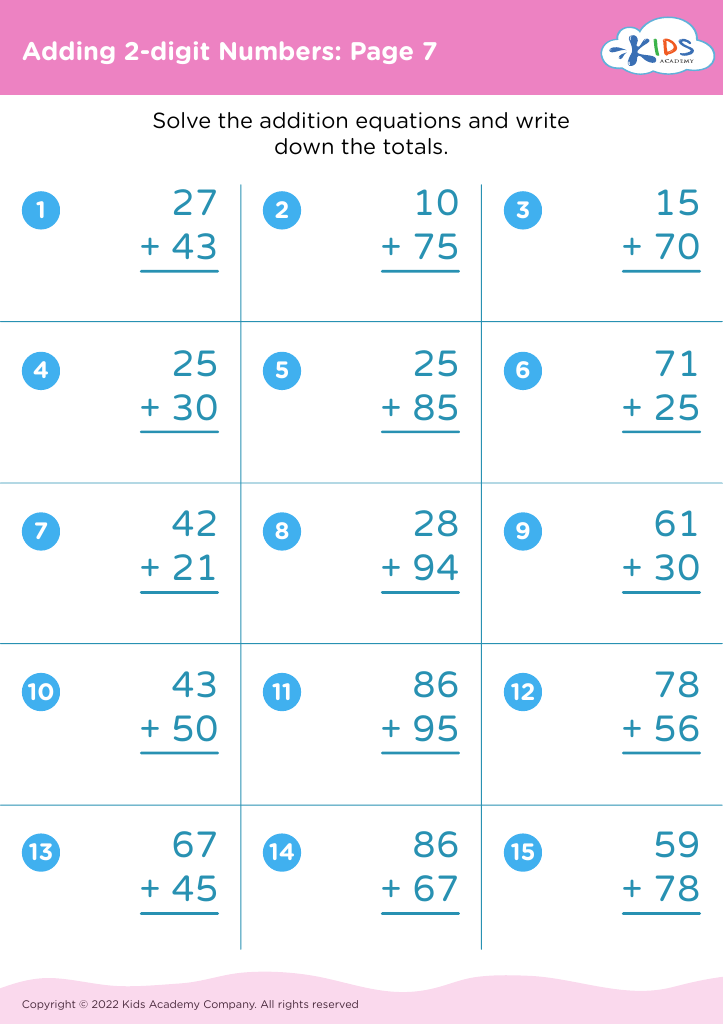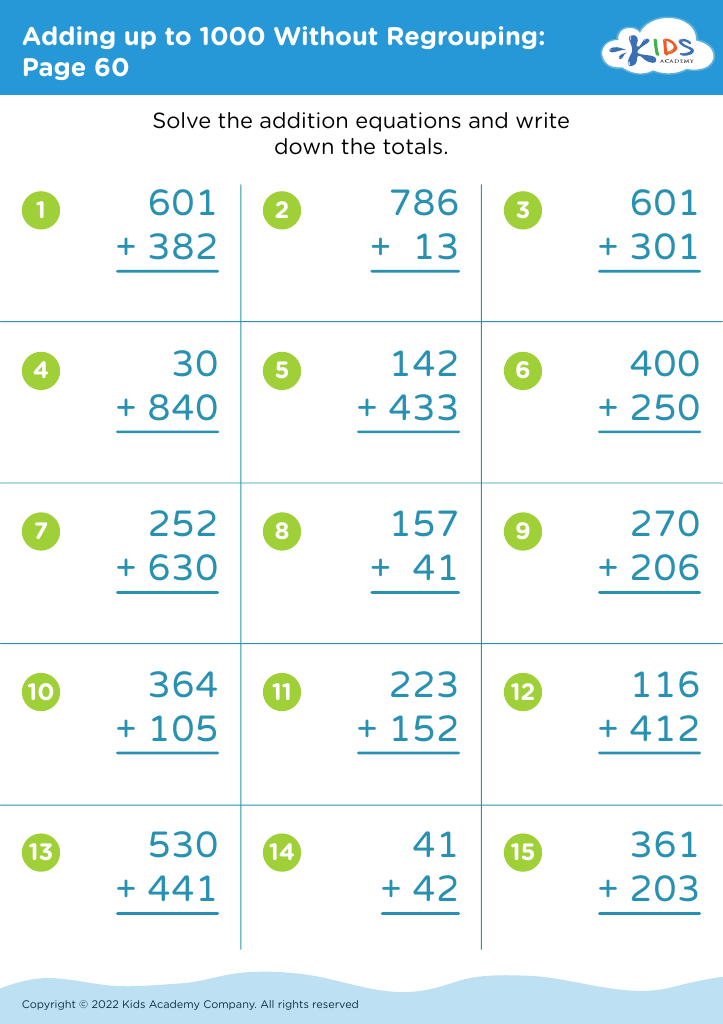Learn addition Addition & Subtraction Worksheets for Ages 4-8
3 filtered results
-
From - To
Welcome to our "Learn Addition & Subtraction Worksheets" page, designed specifically for children aged 4-8! These engaging and colorful worksheets make math fun, helping young learners master essential addition and subtraction skills. With a variety of activities including visual aids, counting exercises, and problem-solving tasks, our resources cater to different learning styles. Whether your child is just starting or needs a little extra practice, our worksheets provide the perfect balance of challenge and enjoyment. Support your child's math journey with our printable worksheets and watch their confidence grow as they tackle numbers like a pro!
Parents and teachers should prioritize teaching addition and subtraction to children aged 4-8 because these foundational skills are crucial for academic success and everyday functioning. Early math concepts build the framework for future learning in more advanced subjects like mathematics and science. By mastering basic arithmetic, children develop critical thinking, problem-solving skills, and the ability to make sense of the world around them.
Understanding addition and subtraction enhances a child's ability to handle larger numbers and more complex mathematical concepts later on. Additionally, these skills promote confidence and curiosity in learning; when children grasp these concepts early, they are more likely to enjoy math and engage with it positively.
Socially and emotionally, learning addition and subtraction fosters cooperation and communication skills during group activities and play. It allows children to work together, share ideas, and understand the importance of collaboration.
Moreover, these skills are integral for daily activities—whether counting change, telling time, or weighing items. By emphasizing addition and subtraction during these formative years, parents and teachers lay a strong academic foundation that supports children’s lifelong learning and nurtures a positive attitude towards math. Investing time in these basic skills can yield significant benefits in other areas of their education and personal lives.



















